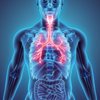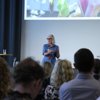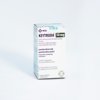Fritextsökning
Artiklar per år
Innehållstyper
-

Joy at Egetis after positive CHMP opinion – ”The single most important milestone”
Stockholm-based Egetis Therapeutics has received a positive CHMP opinion for Emcitate, which could become the first approved treatment for the rare disease MCT8 deficiency."
-

Anna Törner: ”If I fall seriously ill, I’ll move to Finland”
”It is both undignified and undemocratic that cancer patients must travel to Finland to uphold a façade of fairness that does not truly exist”, Anna Törner writes in a column.
-

Läkemedelskrock får Astra Zeneca att avsluta projekt mot opioidberoende
Astra Zeneca har avbrutit utvecklingen av en behandling mot opioidberoende sedan preparatet i en fas II-studie visat en oväntad läkemedelsinteraktion.
-

Investigations against AstraZeneca: ”Chinese interests may be behind them”
Why are there several investigations against AstraZeneca employees in China right now? Life Science Sweden continues to seek answers.
-

The new Swedish life science strategy – “It will consolidate Sweden as a leader”
Clinical trials and precision health are emphasised as key areas in the new national life science strategy.
-

AZ gets approval for drug targeting rare disease – it may reduce cortisone dependence
AstraZeneca’s drug Fasenra gets an expanded indication in the EU and is now approved as a treatment for the rare autoimmune disease known as Churg-Strauss syndrome.
-

GSK pays 2.2 billion dollars to settle Zantac lawsuits
British drugmaker Glaxo Smith Kline, GSK, has struck a 2.2 billion dollar settlement, thereby resolving a vast majority of the liability cases pending against the company in the U.S. that alleged its discontinued drug Zantac caused cancer.
-

AstraZeneca to use American AI platform for cancer trials
In a collaboration AstraZeneca will use an AI model from Israeli-American biotech Immunai to streamline its clinical trials in cancer.
-

From lab to patient – the art of developing new antibody therapies
For 25 years, Danish company Genmab has been developing antibodies and has managed to get several drugs all the way to the patient. Esther Breij has been along for much of the journey and has experienced setbacks, but also huge discoveries. “It’s amazing when you succeed,” she says.
-

Anna Törner: ”Mom, do you think you’ll ever get married again?”
”I realize I’m slowly descending into that familiar statistical rabbit hole, where life’s biggest uncertainties are reduced to point estimates and confidence intervals”, Anna Törner writes in a column.
-

Ingrid Lönnstedt: ”The confidence interval and its width”
Always keep an eye on the width of your and others’ confidence intervals, writes Ingrid Lönnstedt in a science column.
-

Artificial intelligence in radiology – “Risk prediction is very exciting”
A growing number of solutions based on artificial intelligence are being developed and used in healthcare. According to Sophia Zackrisson, Professor of Radiology at Lund University, radiology is a field that is well suited to the technology.
-

MSD discontinues two Keytruda trials
MSD has stopped two late-stage trials that tested its blockbuster immunotherapy Keytruda as a treatment for skin and lung cancer.
-

Thumbs down for lecanemab in the EU – “Very surprised”
The Azheimer's drug lecanemab has received a negative assessment from the European Medicines Agency’s Committee for Medicinal Products for Human Use (CHMP), according to an announcement made by the Agency last week. Bioarctic’s CEO Gunilla Osswald
-

Gothenburg, the city of life science – We are ‘Little Boston’
Western Sweden is investing in life science within everything from advanced therapeutic drugs to femtech. At the same time, stakeholders are looking to other industries for inspiration and knowledge.
-

Nobel Prize winner Torsten Wiesel turns 100: “Old men like me should use their experience to help the young”
In 1955, a young Torsten Wiesel jumped on a boat to the US and embarked on a fabulous career as a neuroscientist, crowned with a Nobel Prize for his work. Now 100 years old, he looks back on an intense life and his upbringing in Stockholm, Sweden, which
-

Carl Borrebaeck – professor and serial entrepreneur with a taste for speed
Award-winning cancer researcher, the founder of many listed companies, and constantly in the academic and commercial spotlight for decades. However, Carl Borrebaeck, Professor of Immunotechnology at Lund, is not yet satisfied. “We have a new, potentially super exciting project in the pipeline,” he says.
-

Astra Zeneca's Covid-19 vaccine Vaxzevria is being withdrawn worldwide
AstraZeneca initiates a worldwide withdrawal of its Covid vaccine Vaxzevria. The measure is taken just months after the company admitted the vaccine can cause a rare and dangerous side effect, but AstraZeneca claims that the decision is purely commercial.
-

Nocebo – the evil twin that makes you feel worse
The placebo effect is well known in healthcare, but not so its opposite: nocebo. “The effect is small, but it can have major repercussions,” says Uppsala researcher Charlotte Blease, co-author of a book on the phenomenon.
-

Study: Popular diabetes treatment is not associated with thyroid cancer
Concerns raised about an association between GLP-1 analogues, used to treat diabetes and obesity, and an increased risk of thyroid cancer are not supported by an extensive Scandinavian study.
-

Studie: Populär diabetesbehandling inte förknippad med sköldkörtelcancer
Farhågor som funnits om en koppling mellan GLP-1-analoger – som används mot diabetes och obesitas – och en förhöjd risk för sköldkörtelcancer får inte något stöd i en stor skandinavisk undersökning.
-

Radioactive tracer to measure effect of drug towards Crohn’s disease
A radioactive tracer developed by Astra Zeneca and the Karolinska Institutet may play a major role for patients with Crohn's disease. That is the belief of Maria Belvisi at AstraZeneca.
-

The life science strategy – what the industry wants
The process of updating the national life science strategy has begun at the government’s life science office. According to industry stakeholders, Sweden’s competitiveness, the accessibility of health data and the integration of innovation in healthcare are some of the points that are essential to review.
-

Specific proposals and targets top the universities’ desired priorities
What are the universities’ expectations for the update of the national life science strategy? Life Science Sweden posed the question to representatives from Karolinska Institutet and Sahlgrenska Academy.